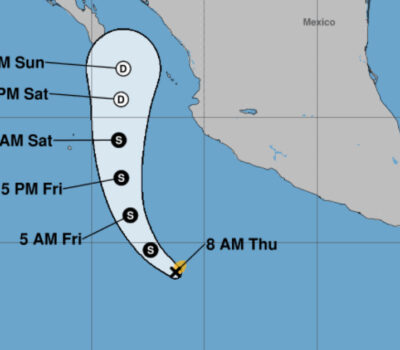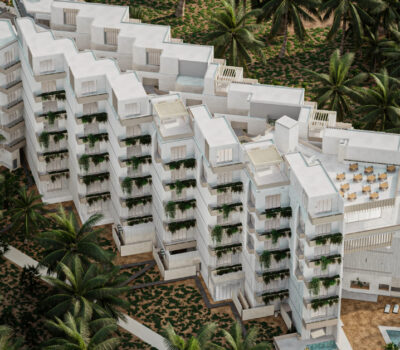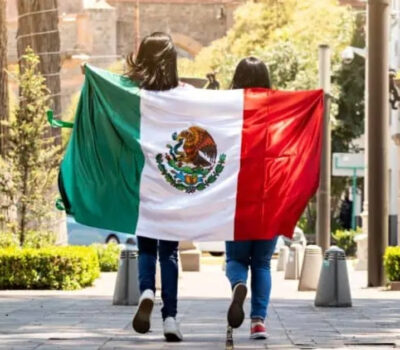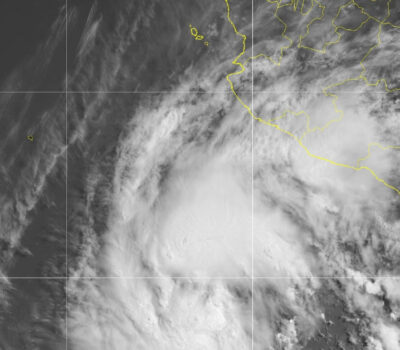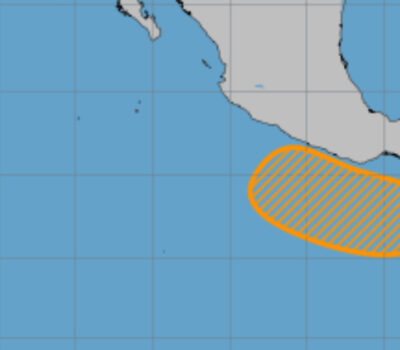
Identifying Major Expense Categories
Budgeting effectively requires identifying all potential expenses. The primary categories to consider are:
- Pre-Move Expenses
- Moving Expenses
- Initial Setup Costs in Mexico
- Ongoing Living Expenses
- Emergency Funds and Contingencies
1. Pre-Move Expenses
Relocating to Mexico offers an exciting opportunity to experience a rich culture, diverse landscapes, and a vibrant way of life. However, a successful move requires thorough preparation, especially when it comes to finances. Understanding the pre-move expenses is essential to ensure a smooth transition. This guide outlines the key costs you should anticipate before making Mexico your new home.
Research and Exploration Trips
Before committing to a permanent move, it’s highly recommended to visit Mexico to explore potential destinations. These exploratory trips allow you to experience different regions firsthand, assess living conditions, and determine which area best suits your lifestyle and needs. Travel expenses for these trips encompass airfare, accommodations, local transportation, meals, and travel insurance. Depending on the length of your stay and your travel preferences, you should budget between $1,000 and $3,000 per trip. This range accounts for varying travel styles, from budget-friendly to more luxurious options.
Legal and Immigration Fees
Securing the appropriate visa and residency status is a critical step in your relocation process. The costs associated with this process include several fees. Applying for a Temporary Resident Visa at a Mexican consulate involves an application fee of approximately $40 to $50. If you’re considering permanent residency, the Permanent Resident Visa has similar application fees, though exact costs may vary depending on the consulate and current regulations.
Upon your arrival in Mexico, obtaining your residency card is mandatory and comes with an additional fee, typically around $150 to $200. This card is essential for legal residency and must be carried with you as proof of your status.
While not a requirement, hiring an immigration lawyer or legal assistant can be beneficial to navigate the complexities of the immigration process. Legal assistance fees can range from $500 to $1,500, depending on the extent of services provided, such as handling paperwork, offering legal advice, and accompanying you to immigration offices.
Documentation costs are another consideration. You may need certified translations and notarizations of personal documents like birth certificates, marriage licenses, or academic records. These services can cost between $10 to $50 per document, so it’s wise to compile a list of necessary documents in advance to estimate this expense accurately.
Health Preparations
Health considerations are paramount when moving abroad. Some visa types may require you to undergo medical examinations or provide proof of vaccinations. The estimated cost for medical exams and any required vaccinations ranges from $100 to $300. It’s advisable to check the specific health requirements for your visa category well in advance to schedule appointments accordingly.
Additionally, securing travel health insurance is crucial for coverage during your initial trips to Mexico. This insurance ensures you have access to medical services in case of emergencies or unexpected health issues while you are still settling in. The estimated cost for travel health insurance is between $50 to $200 per trip, varying based on coverage levels and duration.
Language Learning
Embracing the local language will significantly enhance your experience in Mexico. While English is spoken in tourist areas and by some locals, proficiency in Spanish opens up deeper cultural interactions and eases daily transactions. Investing in Spanish classes or learning materials is a valuable pre-move expense.
Structured classes offer guided learning and can cost between $150 to $500, depending on the course length and the institution offering it. If you prefer self-study or supplementary learning, books and language learning apps are available, with costs ranging from free options to about $100 for comprehensive programs. Starting your language learning before the move can make your transition smoother and more enjoyable.
Checklist
Research and Exploration Trips
Before making a permanent move, it’s advisable to visit Mexico to explore potential destinations.
- Travel Costs: Include airfare, accommodations, transportation within Mexico, meals, and travel insurance.
- Estimated Budget: $1,000 to $3,000 per trip, depending on length of stay and travel style.
Legal and Immigration Fees
Securing the appropriate visa and residency status involves costs.
- Visa Application Fees:
- Temporary Resident Visa: Approximately $40 to $50 application fee at a Mexican consulate.
- Permanent Resident Visa: Similar application fees; however, costs may vary.
- Residency Card Fee: Upon arrival in Mexico, you must pay a fee for your residency card, around $150 to $200.
- Legal Assistance:
- Immigration Lawyer Fees: Optional but recommended; can range from $500 to $1,500 depending on services.
- Documentation Costs:
- Notarizations and Translations: Certified translations and notarizations of documents may cost $10 to $50 per document.
Health Preparations
- Medical Exams and Vaccinations: Some visa types require medical examinations.
- Estimated Cost: $100 to $300.
- Travel Health Insurance: Coverage during your initial trips.
- Estimated Cost: $50 to $200 per trip.
Language Learning
- Spanish Classes or Learning Materials:
- Classes: $150 to $500 for courses.
- Books and Apps: $0 to $100.
2. Moving Expenses
Embarking on a journey to Mexico as an expatriate is an exciting venture filled with the promise of new experiences and opportunities. However, the process of moving internationally requires meticulous planning, particularly concerning the expenses involved. Understanding the various costs associated with relocating can help you budget effectively and ensure a smooth transition to your new home. This guide outlines the key moving expenses you should anticipate when planning your move to Mexico.
Transportation of Personal Belongings
One of the significant considerations when moving to Mexico is deciding what personal belongings to bring and how to transport them. Shipping costs can vary greatly depending on the volume of items and the distance they need to travel. International moving companies offer container shipping services, which can range from $2,000 to $5,000 or more. This option is suitable if you plan to move a substantial amount of household goods. Alternatively, air freight is a faster but more expensive method, ideal for smaller shipments or essential items you need immediately upon arrival.
Customs duties and taxes are important factors to consider. While household goods are generally exempt from duties if you’re moving under a residency visa, taxes may apply to new or high-value items. You may also need to obtain temporary import permits for certain items, which could involve additional fees. To protect your belongings during transit, it’s advisable to purchase insurance, typically costing between 1% to 3% of the declared value of your items. This insurance provides peace of mind against potential loss or damage during the move.
Transporting Yourself and Your Family
The logistics of moving yourself and your family to Mexico involve several costs. Airfare for one-way tickets can range from $200 to $600 per person, depending on your departure city and destination within Mexico. If you have pets, additional expenses will include veterinary certificates and vaccinations, costing between $50 to $200. Airlines also charge pet transportation fees, which can vary from $100 to $500 per pet based on the airline’s policies and the size of your pet.
Upon arrival, you’ll need temporary accommodation while you search for a permanent residence. Budgeting for at least two weeks in a hotel or Airbnb is prudent, with estimated costs ranging from $500 to $1,500. These costs depend on the location, type of accommodation, and your personal preferences. Choosing accommodation that offers kitchen facilities can also help reduce expenses on dining out during this period.
Vehicle Considerations
Deciding what to do with your vehicle is another significant aspect of your move. If you choose to drive your car to Mexico, you’ll need to obtain a Temporary Import Permit (TIP), which costs approximately $50. Additionally, you’ll be required to pay a refundable deposit ranging from $200 to $400, depending on the age of your vehicle. This deposit is returned when you take your vehicle out of Mexico before the permit expires.
Mexican auto insurance is mandatory, even if you have existing coverage from your home country. The cost for Mexican auto insurance ranges from $200 to $500 per year, depending on the coverage level and your vehicle’s specifications. It’s crucial to have this insurance in place before driving in Mexico to comply with local laws and ensure you’re covered in case of an accident.
Alternatively, you might decide to sell your vehicle before moving. If selling quickly, be prepared for the possibility of receiving less than the market value. This option eliminates the costs and complexities of importing a vehicle but requires budgeting for transportation upon arrival in Mexico. Purchasing a new or used vehicle in Mexico is another option, and prices can vary widely based on the make, model, and condition of the car. It’s important to research and budget accordingly if you plan to buy a vehicle after your move.
Checklist
Transportation of Personal Belongings
Deciding what to bring and how to transport it is a significant part of your budget.
- Shipping Costs:
- International Moving Companies: Shipping a container can range from $2,000 to $5,000 or more, depending on volume and distance.
- Air Freight: More expensive but faster; suitable for smaller shipments.
- Customs Duties and Taxes:
- Temporary Import Permits: May be required for certain items.
- Duties: Household goods are generally exempt if moving under a residency visa, but taxes may apply to new or high-value items.
- Insurance for Goods in Transit:
- Estimated Cost: 1% to 3% of the declared value of your items.
Transporting Yourself and Family
- Airfare: One-way tickets for you and your family.
- Estimated Cost: $200 to $600 per person, depending on the departure city and destination.
- Pet Transportation:
- Veterinary Certificates and Vaccinations: $50 to $200.
- Airline Pet Fees: $100 to $500 per pet.
- Temporary Accommodation Upon Arrival:
- Hotel or Airbnb: Budget for at least two weeks while securing permanent housing.
- Estimated Cost: $500 to $1,500, depending on location and preferences.
Vehicle Considerations
- Driving Your Car to Mexico:
- Temporary Import Permit (TIP): Approximately $50, plus a refundable deposit of $200 to $400 based on the vehicle’s age.
- Insurance: Mexican auto insurance is mandatory.
- Estimated Cost: $200 to $500 per year.
- Selling and Buying:
- Selling Your U.S. Vehicle: Consider potential losses if selling quickly.
- Purchasing in Mexico: Budget for a new or used vehicle if needed.
3. Initial Setup Costs in Mexico
Moving to Mexico is an exciting adventure that promises a rich cultural experience, beautiful landscapes, and a lower cost of living compared to many Western countries. However, understanding the initial setup costs is crucial for a smooth transition. Being financially prepared ensures that you can settle comfortably without unexpected financial stress. This guide provides a comprehensive overview of the initial expenses you should anticipate after moving to Mexico.
Housing Costs
Securing housing is one of the first and most significant steps in your relocation process. If you opt to rent a property, be prepared to pay a security deposit typically equivalent to one month’s rent. This deposit is held by the landlord as a safeguard against potential damages and is usually refundable at the end of your lease, provided there are no issues. In addition to the security deposit, the first month’s rent is paid upfront before moving in. This means that initially, you will need to budget for at least two months’ worth of rent.
For those interested in purchasing property, the initial costs are more substantial. A down payment is required, usually ranging from 10% to 20% of the property’s value. This percentage can vary based on the agreement with the seller and the financial institution if a mortgage is involved. Closing costs are another significant expense, encompassing notary fees, taxes, and registration fees. These costs typically total between 5% to 10% of the property’s price. It’s important to factor in these percentages to your overall budget when considering a property purchase.
Setting up utilities in your new home involves installation fees for essential services such as electricity, water, gas, internet, and cable. The total estimated cost for these installation fees ranges from $100 to $300. The exact amount depends on the providers and the location of your residence. It’s advisable to contact utility companies in advance to get precise quotes and schedule installations promptly.
Furnishing your new home is another expense to consider. Purchasing furniture and appliances locally can vary widely in cost, depending on your needs and preferences. Budgeting between $1,000 to $5,000 is reasonable for acquiring basic furniture and essential appliances. Shopping at local markets, second-hand stores, or waiting for sales can help reduce these costs.
Legal Services
Engaging legal assistance is highly recommended when renting or purchasing property in Mexico. An attorney can help navigate contracts, ensure all paperwork is in order, and protect your interests. Attorney fees for these services typically range from $300 to $1,000, depending on the complexity of the transaction and the attorney’s experience.
If you’re purchasing property in restricted zones, such as coastal areas or near international borders, you’ll need to establish a bank trust known as a “Fideicomiso.” This trust allows foreigners to legally own property in these restricted zones. The setup fee for a Fideicomiso ranges from $500 to $1,000, with annual fees between $500 to $800. These costs are essential to factor into your budget if you plan to own property in these desirable locations.
Residency and Identification
Securing your resident identification is a crucial step in establishing your life in Mexico. The resident ID card, which serves as proof of your legal status in the country, comes with a fee of approximately $150 to $200. This card is necessary for various activities, such as opening a bank account, signing rental agreements, and accessing certain services.
Registering for a CURP (Clave Única de Registro de Población) is another important task. The CURP is a unique identification number similar to a Social Security number in other countries. Obtaining a CURP is generally free of charge and is essential for official documentation and transactions. It facilitates processes like obtaining a driver’s license, enrolling in public healthcare, and filing taxes.
Healthcare Enrollment
Healthcare is a vital consideration for anyone moving to a new country. In Mexico, you have the option of enrolling in private health insurance or the public healthcare system known as IMSS (Instituto Mexicano del Seguro Social). Private health insurance premiums range from $1,000 to $3,000 per year, depending on your age, health condition, and the level of coverage you desire. Private insurance offers access to a wider network of hospitals and specialists, often with shorter wait times.
Alternatively, enrolling in the IMSS public healthcare system is an affordable option, with an annual fee of approximately $400 to $600 per person. IMSS provides comprehensive medical coverage, including doctor visits, medications, and emergency services. However, it’s important to be aware that public hospitals may have longer wait times and fewer amenities compared to private facilities.
Language and Integration
Integrating into the local culture is greatly enhanced by learning the Spanish language. Investing in Spanish classes can facilitate daily interactions, help build relationships, and enrich your overall experience in Mexico. Private lessons typically cost between $10 to $20 per hour. Group classes may offer lower rates and the added benefit of meeting other expatriates and locals.
Participating in cultural integration activities is another excellent way to immerse yourself in Mexican society. Workshops, tours, and community events not only provide educational experiences but also help you connect with your new community. Budgeting $50 to $200 for these activities allows you to explore local customs, traditions, and history, contributing to a deeper understanding and appreciation of your new home.
Checklist
Housing Costs
- Rental Deposits:
- Security Deposit: Typically equivalent to one month’s rent.
- First Month’s Rent: Paid upfront.
- Purchasing Property:
- Down Payment: Usually 10% to 20% of the property value.
- Closing Costs: Include notary fees, taxes, and registration fees, totaling 5% to 10% of the property’s price.
- Utilities Setup:
- Installation Fees: For electricity, water, gas, internet, and cable.
- Estimated Cost: $100 to $300 total.
- Installation Fees: For electricity, water, gas, internet, and cable.
- Furniture and Appliances:
- Purchasing Locally: Budget depending on needs.
- Estimated Cost: $1,000 to $5,000.
- Purchasing Locally: Budget depending on needs.
Legal Services
- Legal Assistance for Property Rental or Purchase:
- Attorney Fees: $300 to $1,000.
- Bank Trust (Fideicomiso) Fees:
- If purchasing property in restricted zones (coastal areas).
- Setup Fee: $500 to $1,000.
- Annual Fees: $500 to $800.
Residency and Identification
- Resident ID Card:
- Fee: Approximately $150 to $200.
- CURP Registration:
- Cost: Generally free; it’s a unique identification number similar to a Social Security number.
Healthcare Enrollment
- Private Health Insurance:
- Premiums: $1,000 to $3,000 per year, depending on coverage and age.
- Public Healthcare Enrollment (IMSS):
- Annual Fee: Approximately $400 to $600 per person.
Language and Integration
- Spanish Classes:
- Cost: $10 to $20 per hour for private lessons.
- Cultural Integration Activities:
- Workshops or Tours: $50 to $200.
4. Ongoing Living Expenses
Moving to Mexico offers a blend of rich culture, diverse landscapes, and a lower cost of living compared to many Western countries. However, understanding the ongoing living expenses is crucial for long-term financial planning. This guide provides a detailed overview of the monthly costs and financial obligations an expatriate can expect after settling in Mexico.
Monthly Living Expenses
Housing
Housing costs in Mexico vary significantly depending on the location and type of accommodation. In major urban centers like Mexico City, monthly rent for an apartment can range from $500 to $1,500. These prices reflect the demand for housing in densely populated areas with more amenities and job opportunities. In contrast, smaller cities and towns offer more affordable options, with monthly rents ranging from $300 to $800. These areas may provide a quieter lifestyle and a stronger sense of community, making them attractive to many expats.
Utilities
Utilities are an essential part of monthly expenses and include electricity, water, gas, internet, and cable services. Electricity bills can range from $30 to $100 per month, depending on usage and the climate of the region. For instance, areas requiring air conditioning for most of the year will incur higher electricity costs. Water and gas services typically add another $20 to $50 per month to your expenses. Internet and cable services are relatively affordable, costing between $20 to $60 per month, with prices varying based on the speed and package you choose.
Groceries and Household Items
The cost of groceries and household items in Mexico is generally lower than in many Western countries. Monthly expenses for these necessities are estimated to range from $200 to $500. This amount depends on your shopping habits, dietary preferences, and whether you choose to purchase imported goods or local products. Shopping at local markets and buying seasonal produce can help keep costs down.
Transportation
Transportation costs will vary depending on your location and personal preferences. Public transit is widely available in urban areas and is an economical option, with monthly costs ranging from $20 to $50. This includes buses, metro services, and local trains. If you own a car, fuel costs are approximately $4 per gallon. Additional expenses for car owners include maintenance, insurance, and parking fees, which should be factored into your monthly budget.
Healthcare
Healthcare in Mexico is both accessible and affordable. If you have private health insurance, your premiums are as previously estimated during your initial setup costs. Out-of-pocket expenses for medical services are relatively low, with doctor visits typically costing between $20 to $50. Prescription medications are also generally less expensive than in the United States. It’s important to maintain adequate health coverage to ensure access to quality medical care when needed.
Education (if applicable)
For expatriates with children, education is an important consideration. Private school tuition in Mexico can range from $200 to $800 per month. The cost varies based on the school’s reputation, curriculum, and location. Many private schools offer bilingual education and follow international curricula, which can be beneficial for expat families. It’s advisable to research and visit schools to find the best fit for your child’s educational needs.
Entertainment and Dining Out
Mexico offers a vibrant social scene with numerous options for dining and entertainment. Dining out is affordable, with meals at local restaurants costing between $5 to $20 per person. Street food is even less expensive and offers an authentic taste of Mexican cuisine. Leisure activities such as movies, cultural events, and recreational activities can add another $50 to $200 per month to your expenses, depending on your lifestyle and interests.
Taxes and Legal Obligations
Income Tax
As an expatriate, it’s important to stay informed about your tax obligations in both your home country and Mexico. U.S. citizens, for instance, are required to maintain compliance with IRS requirements regardless of where they live. This includes filing annual tax returns and reporting worldwide income. If you earn income in Mexico, you may also be subject to Mexican income tax. Tax rates and regulations can vary, so consulting with a tax professional familiar with both U.S. and Mexican tax laws is advisable.
Property Taxes (if applicable)
If you own property in Mexico, you will be responsible for paying property taxes, known as “Predial.” These taxes are generally low, averaging around 0.1% of the property’s assessed value annually. The exact amount can vary based on the property’s location and value. It’s important to pay these taxes promptly to avoid penalties and ensure compliance with local laws.
Accounting Services
Navigating tax laws and financial obligations in a new country can be complex. Hiring accounting services can help you manage these responsibilities effectively. Estimated costs for tax preparation assistance range from $300 to $1,000 per year. A qualified accountant can assist with filing tax returns, understanding deductions, and ensuring compliance with both local and international tax regulations.
Banking and Financial Services
Bank Account Fees
Opening a bank account in Mexico can help you manage your finances more efficiently. Monthly maintenance fees for bank accounts vary, ranging from $0 to $15. Some banks offer accounts with no monthly fees if certain conditions are met, such as maintaining a minimum balance or setting up direct deposits. It’s advisable to compare different banks and account options to find one that best suits your needs.
Currency Exchange Fees
Managing currency exchange is an important aspect of handling finances as an expat. ATM withdrawals may incur foreign transaction fees, which can add up over time. These fees vary depending on your home bank’s policies and the Mexican bank’s charges. International transfers can also come with fees and less favorable exchange rates. To minimize these costs, consider using financial services like Wise (formerly TransferWise) or other online platforms that offer better exchange rates and lower fees for international money transfers.
Checklist
Monthly Living Expenses
- Housing:
- Rent: Varies by location.
- Mexico City: $500 to $1,500 per month.
- Smaller Cities/Towns: $300 to $800 per month.
- Rent: Varies by location.
- Utilities:
- Electricity: $30 to $100 per month.
- Water and Gas: $20 to $50 per month.
- Internet and Cable: $20 to $60 per month.
- Groceries and Household Items:
- Estimated Monthly Cost: $200 to $500.
- Transportation:
- Public Transit: $20 to $50 per month.
- Fuel (if owning a car): Approximately $4 per gallon.
- Healthcare:
- Insurance Premiums: As previously estimated.
- Out-of-Pocket Expenses: Low-cost doctor visits ($20 to $50).
- Education (if applicable):
- Private School Tuition: $200 to $800 per month.
- Entertainment and Dining Out:
- Dining Out: $5 to $20 per meal.
- Leisure Activities: $50 to $200 per month.
Taxes and Legal Obligations
- Income Tax:
- U.S. Tax Obligations: Maintain compliance with IRS requirements.
- Mexican Income Tax: Applicable if earning income in Mexico.
- Property Taxes (if applicable):
- Predial Tax: Generally low, around 0.1% of the property’s value annually.
- Accounting Services:
- Estimated Cost: $300 to $1,000 per year for tax preparation assistance.
Banking and Financial Services
- Bank Account Fees:
- Monthly Maintenance Fees: $0 to $15.
- Currency Exchange Fees:
- ATM Withdrawals: May incur foreign transaction fees.
- International Transfers: Fees vary; consider services like TransferWise for better rates.
5. Emergency Funds and Contingencies
Embarking on a new life in Mexico as an expatriate is an exciting journey filled with the promise of adventure and cultural enrichment. However, the unpredictability of life means that unexpected expenses can arise at any time. Establishing a robust financial cushion is not just a prudent measure but a crucial step in ensuring peace of mind and financial stability in your new home. This involves creating an emergency fund and allocating a contingency budget to safeguard against unforeseen costs.
The Importance of an Emergency Fund
An emergency fund acts as a financial safety net, providing you with the resources to handle unexpected situations without derailing your long-term financial plans. For expats living in Mexico, this fund is particularly important due to factors such as currency fluctuations, unfamiliar financial systems, and potential gaps in insurance coverage.
Financial experts recommend that individuals maintain an emergency fund equivalent to at least three to six months of living expenses. This amount serves as a buffer to cover essential costs such as housing, utilities, food, healthcare, and transportation in the event of income disruption or unexpected expenditures. To determine the exact amount needed, calculate your average monthly expenses and multiply by the number of months you wish to cover.
Having this fund readily accessible ensures that you are prepared for a variety of scenarios. These might include sudden medical emergencies that require out-of-pocket payments, urgent repairs to your home or vehicle, or unplanned travel expenses due to family emergencies back home. In Mexico, while the cost of living is generally lower than in many other countries, such unexpected costs can still pose a significant financial burden if you’re unprepared.
Establishing a Contingency Budget
In addition to an emergency fund, it’s wise to set aside a contingency budget specifically for unplanned costs related to your move and ongoing living expenses. Allocating an additional 10% to 15% of your total moving budget can provide a financial cushion to absorb unforeseen expenses that may not be covered by your initial planning.
Unanticipated costs might include fluctuations in exchange rates affecting your purchasing power, additional legal fees, unexpected taxes or duties, or sudden increases in living expenses due to economic changes. A contingency budget allows you to manage these surprises without compromising your financial stability or dipping into your emergency fund designated for critical needs.
Building Your Financial Cushion
Creating an adequate emergency fund and contingency budget requires careful planning and disciplined financial management. Here are some steps to help you build these essential financial safeguards:
- Assess Your Financial Situation: Begin by thoroughly reviewing your current financial status. Calculate your monthly living expenses in Mexico, including rent, utilities, groceries, transportation, healthcare, and any other regular costs. This assessment will provide a clear picture of the amount needed for your emergency fund.
- Set Clear Savings Goals: Establish specific targets for both your emergency fund and contingency budget. Having clear goals makes it easier to track your progress and stay motivated.
- Develop a Savings Plan: Determine how much you can realistically save each month towards your financial cushions. Incorporate this into your monthly budget as a non-negotiable expense.
- Automate Your Savings: Consider setting up automatic transfers to a separate savings account dedicated to your emergency fund and contingency budget. Automation ensures consistency and reduces the temptation to skip contributions.
- Manage Expenses Wisely: Look for ways to reduce unnecessary expenses. This might involve dining out less frequently, choosing cost-effective entertainment options, or finding more affordable alternatives for regular purchases.
- Monitor Currency Exchange Rates: Since exchange rates can impact the value of your savings, keep an eye on currency fluctuations. Transferring funds when rates are favorable can maximize your savings in Mexican pesos.
- Keep Funds Accessible but Secure: Place your emergency fund in an account that is easily accessible in case of immediate need, but avoid tying it up in investments that could be volatile or hard to liquidate quickly.
Relocating to a new country is an exciting venture filled with the promise of new experiences and opportunities. However, moving from the United States to Mexico requires careful financial planning to ensure a smooth transition. Budgeting for your move is a critical step that can save you from unexpected expenses and financial stress. This comprehensive guide will help you identify and estimate the costs associated with moving to Mexico, provide strategies for effective budgeting, and offer tips to optimize your finances during the relocation process.



